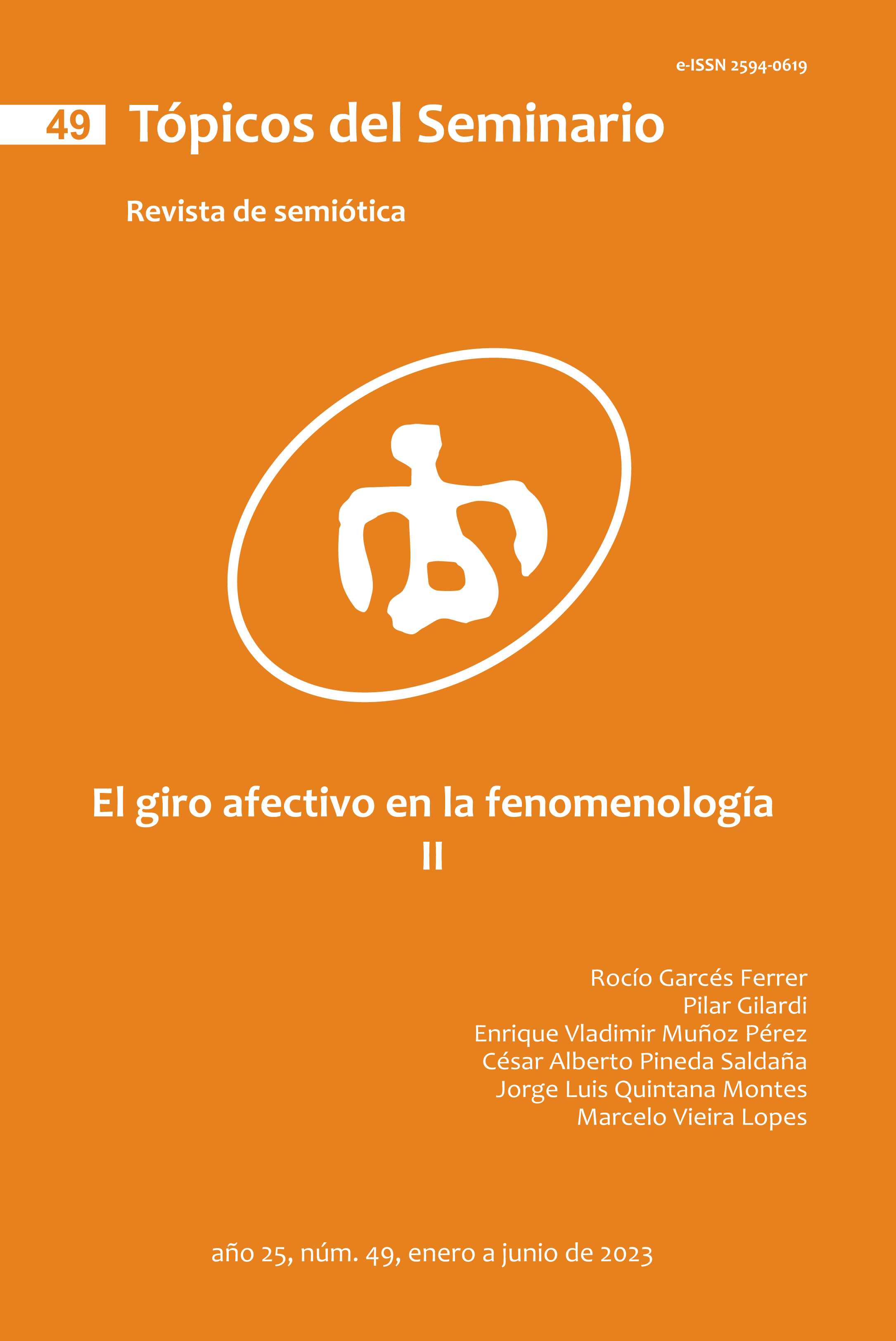Heidegger and the Fear (Furcht): The Presence of the COVID-19
DOI:
https://doi.org/10.35494/topsem.2023.1.49.847Keywords:
Understanding, Fear, Disease, CoronavirusAbstract
The question that guides this work is what does Martin Heidegger's phenomenology contribute to understand the phenomenon of fear caused by the COVID-19 disease? In my opinion, the analyzes of fear that Heidegger makes in paragraph 30 of Being and Time, can help to clarify the experience of the disease of COVID-19 and, to some extent, can help people to understand this phenomenon. In the same way, I would like to highlight the affective disposition or the feeling of fear (Furcht), which has been less attended by the Heideggerian interpretation, compared to the prolific studies related to anxiety (Angst).
Downloads
References
Agamben, G. (2020). Contagio. En Amadeo, Pablo (Ed.), Sopa de Wuhan, pensamiento contemporáneo en tiempos de pandemias (pp. 31-33). Editorial ASPO.
Aristóteles (1999). Retórica. Madrid. Centro de Estudios Públicos.
Berardi, F. (2020). Crónicas de la psicodeflación. En Amadeo, Pablo (Ed.), Sopa de Wuhan, pensamiento contemporáneo en tiempos de pandemias (pp. 35-54). Editorial ASPO.
Byung-Chul Han (2020). La emergencia viral y el mundo de mañana. En Amadeo, Pablo (Ed.), Sopa de Wuhan, pensamiento contemporáneo en tiempos de pandemias (pp. 97-111). Editorial ASPO.
Dorschel, A. (2012). Furcht und Angst. Über die Intentionalität von Emotionen. Dietmar Goltschnigg (Ed.). Angst. Lähmender Stillstand und Motor des Fortschritts. (pp. 49-54). Stauffenburg.
Heidegger, M. (1997). Ser y tiempo. Santiago de Chile. Editorial Universitaria.
Heidegger, M. (2002). Grundbegriffe der Aristotelischen Philosophie. (GA 18). Frankfurt am Main. Editorial Vittorio Klostermann.
Heidegger, M. (2007). Los conceptos fundamentales de la metafísica. Mundo, soledad, finitud. Madrid. Alianza Editorial.
Uscatescu, J. (1987). La filosofía del miedo. Cuadernos Hispanoamericanos. (450), 85-96.
Rentsch, T. (2003). Seins und Zeit. Fundamentalontologie als Hermeneutik der Endlichkeit. En Heidegger Handbuch. Leben-Werk-Wirkung. Dieter Thomä (Edit). Stuttgart-Weimar. J. B. Metzler.
Žižek, S. (2020). Coronavirus es un golpe al capitalismo al estilo de “Kill Bill” y podría conducir a la reinvención del comunismo. En Amadeo, Pablo (Ed.). Sopa de Wuhan, pensamiento contemporáneo en tiempos de pandemias (pp. 21-28). Editorial ASPO.
Downloads
Published
How to Cite
Issue
Section
License

Tópicos del Seminario is licensed under a Creative Commons Reconocimiento-NoComercial-CompartirIgual 4.0 Internacional License.














